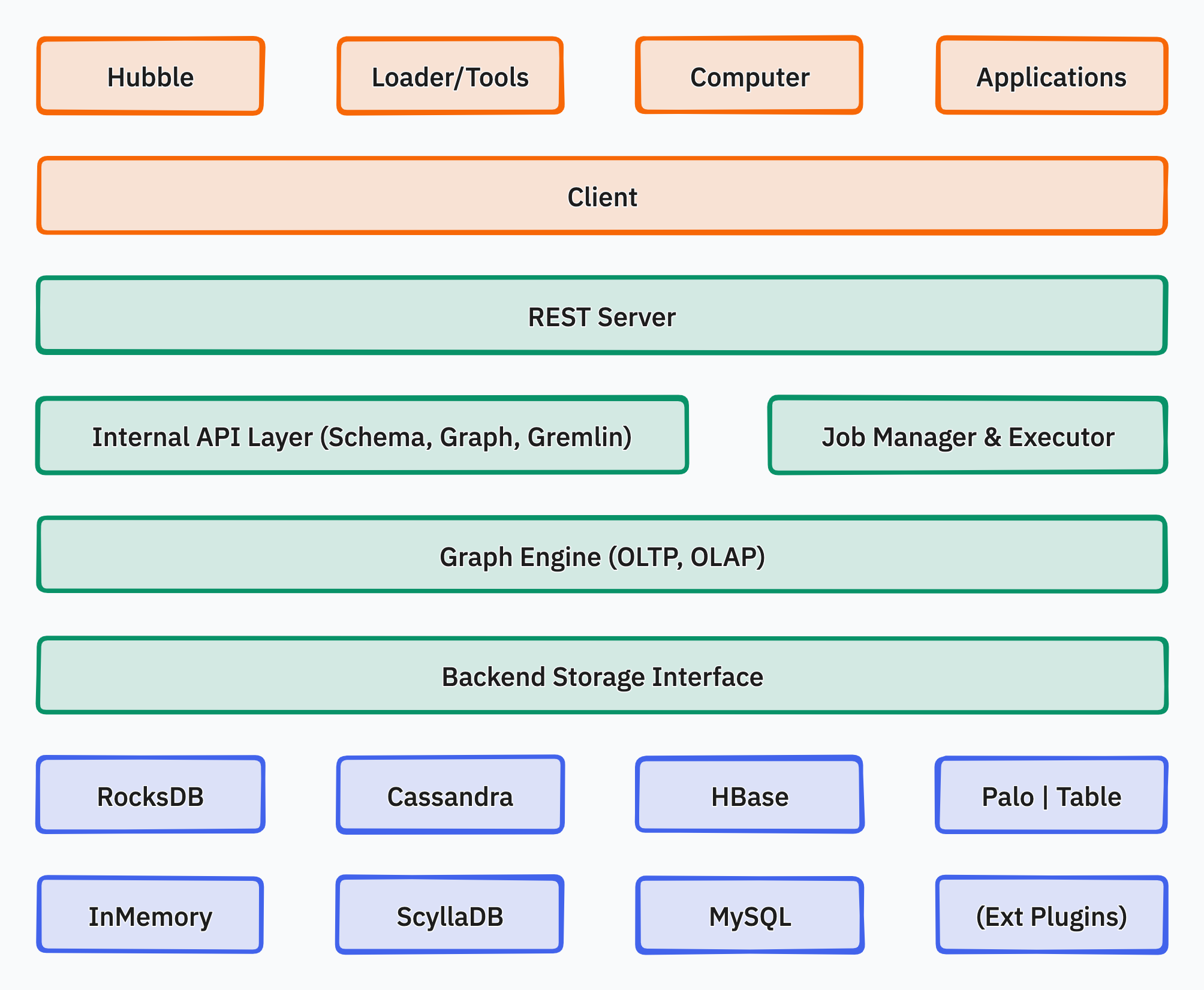HugeGraph Architecture Overview
1 Overview
As a general-purpose graph database product, HugeGraph needs to possess basic graph database functionality. HugeGraph supports two types of graph computation: OLTP and OLAP. For OLTP, it implements the Apache TinkerPop3 framework and supports the Gremlin and Cypher query languages. It comes with a complete application toolchain and provides a plugin-based backend storage driver framework.
Below is the overall architecture diagram of HugeGraph:

HugeGraph consists of three layers of functionality: the application layer, the graph engine layer, and the storage layer.
- Application Layer:
- Hubble: A one-stop visual analysis platform that covers the entire process from data modeling to rapid data import, online and offline analysis, and unified graph management, realizing wizard-style operations for the entire graph application process.
- Loader: A data import component that can transform data from multiple data sources into graph vertices and edges and batch import them into the graph database.
- Tools: Command-line tools for deploying, managing, and backing up/restoring data in HugeGraph.
- Computer: A distributed graph processing system (OLAP), which is an implementation of Pregel and can run on Kubernetes.
- Client: A HugeGraph client written in Java. Users can use the Client to write Java code to operate HugeGraph. Python, Go, C++ and other language support will be provided in the future as needed.
- Graph Engine Layer:
- REST Server: Provides a RESTful API for querying graph/schema information, supports the Gremlin and Cypher query languages, and offers APIs for service monitoring and operations.
- Graph Engine: Supports both OLTP and OLAP graph computation types, with OLTP implementing the Apache TinkerPop3 framework.
- Backend Interface: Implements the storage of graph data to the backend.
- Storage Layer:
- Storage Backend: Supports multiple built-in storage backends (RocksDB/MySQL/HBase/…) and allows users to extend custom backends without modifying the existing source code.
Page last updated February 3, 2026: doc: update storage scale guidance to <4TB & validate url in ci (#448) (0d3b632c)